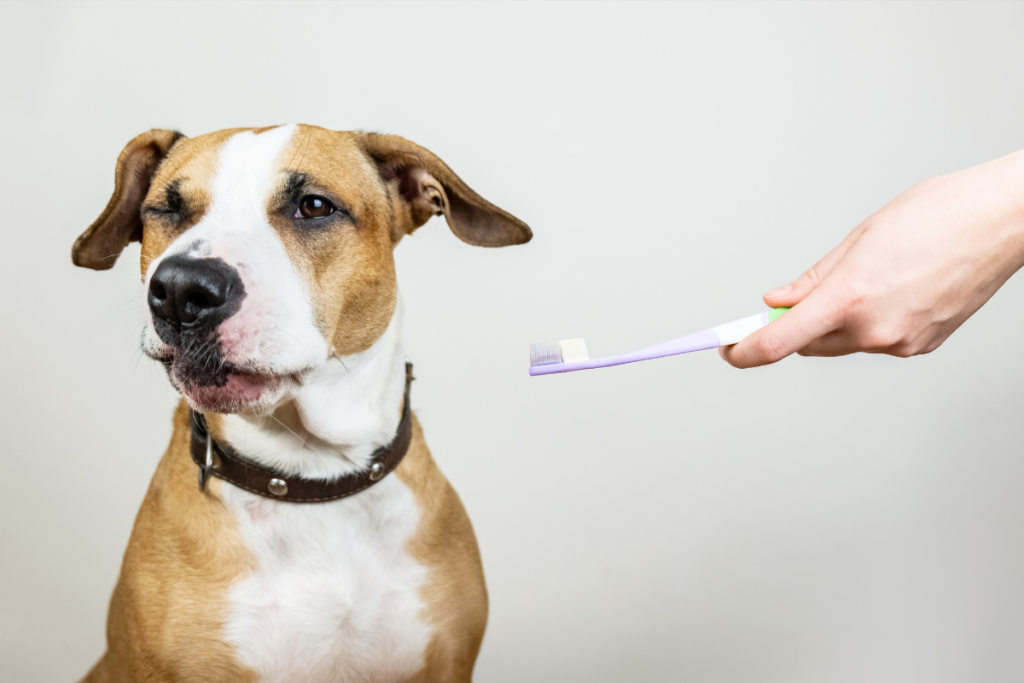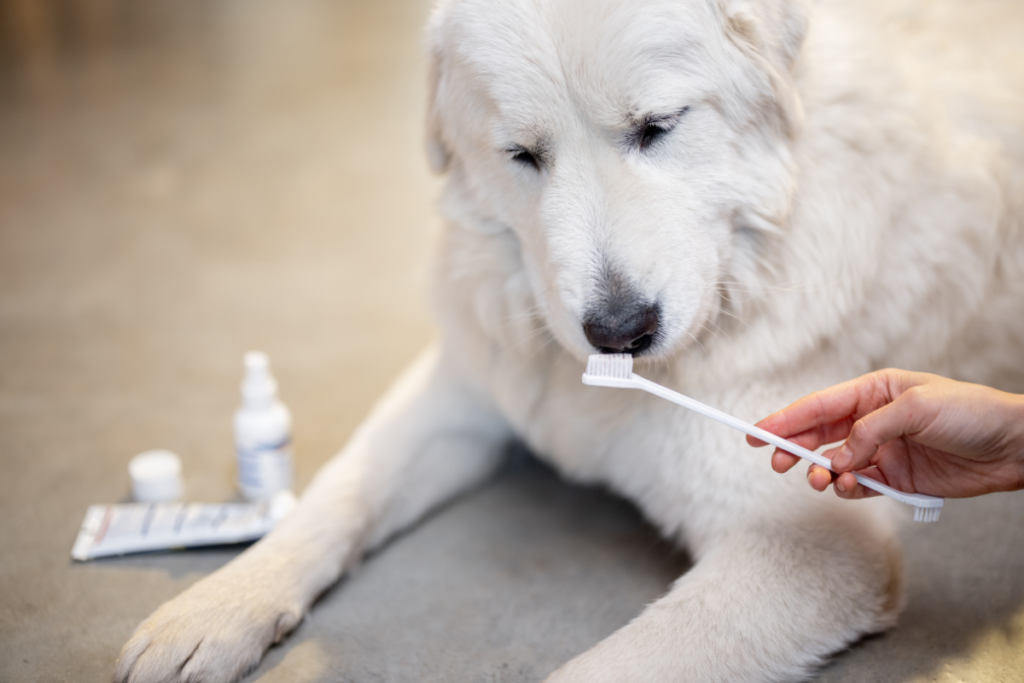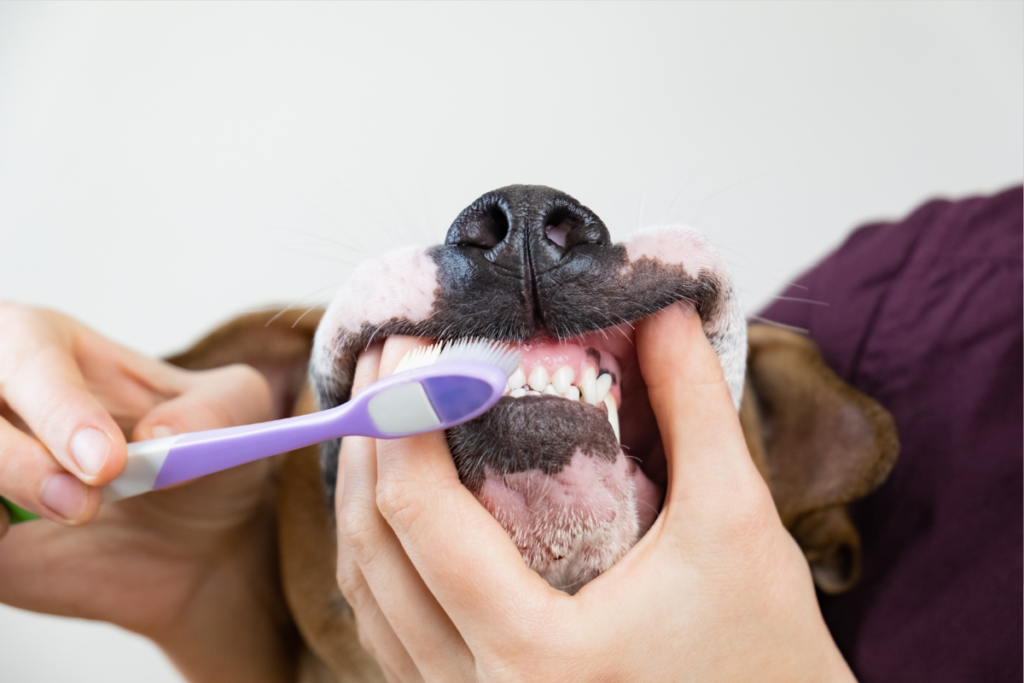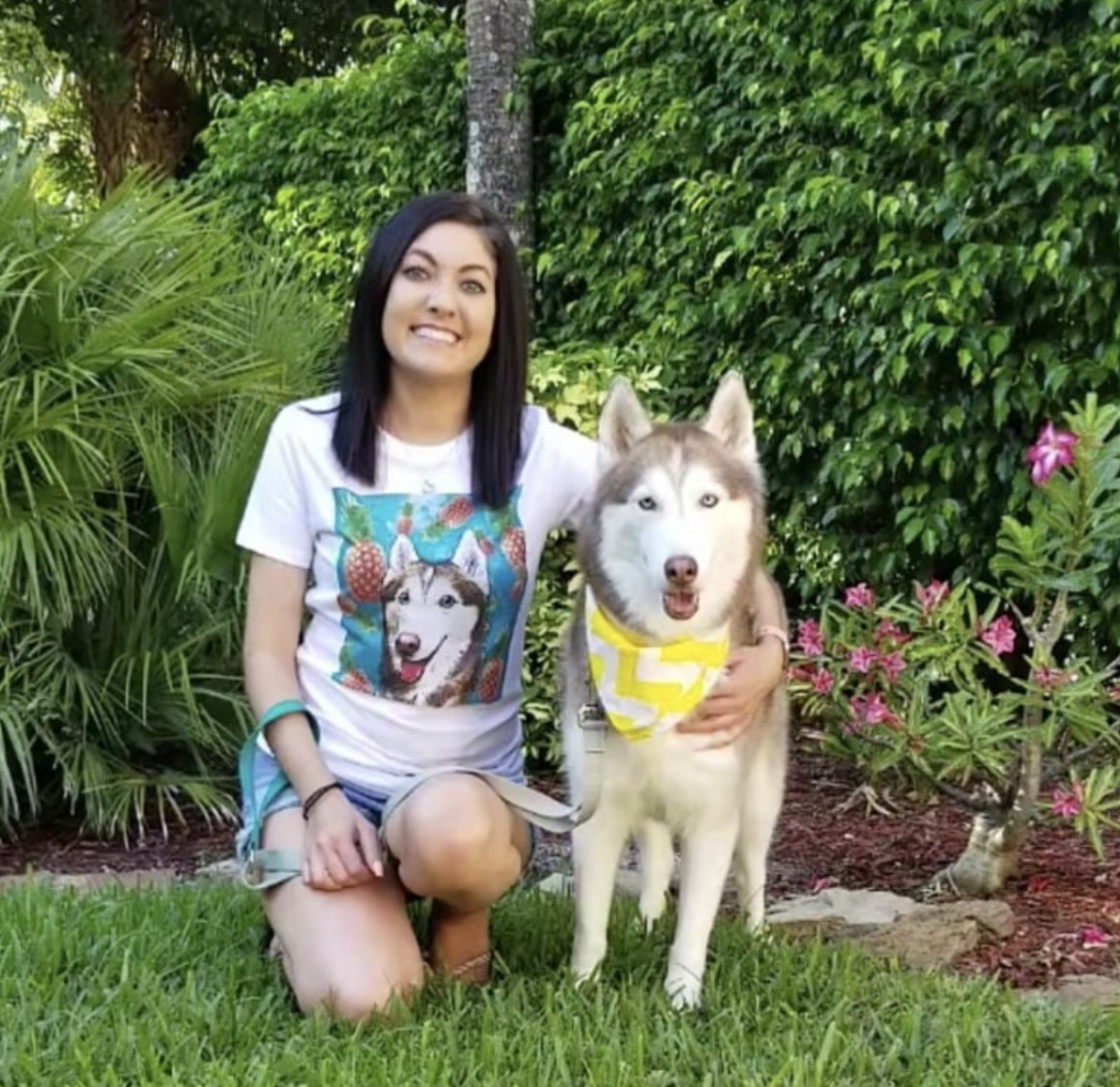For Pups With Short Attention Spans…
It is not recommended to brush your dog’s teeth with baking soda. Baking soda can lead to upset stomachs and in large amounts can even prove toxic to dogs. The abrasive quality of baking soda can be replaced by a toothbrush made for dogs, and toothpaste made especially for dogs can take care of odors.
If you happened upon this article from a Google search, you probably saw there’s quite a bit of debate across the Internet: is it okay to use baking soda (sodium bicarbonate) to brush your dog’s teeth?
When it comes to your dog’s health and safety, inconclusive and confusing answers just don’t cut it, so we got our paws dirty to dig into the details and find the answers.
Is Baking Soda Safe For Dogs?
The short answer: It depends. Although small amounts of baking soda can be relatively harmless, it can cause upset stomachs and research has shown that larger amounts can even be toxic to dogs1.


The long answer: Baking soda is really best avoided as an ingredient in dog toothpaste, for a couple important reasons. One, it can be irritating to your pup’s stomach if ingested, even in small amounts, since dogs can’t really spit out their toothpaste like we can. Two, it doesn’t have the most appetizing taste1, which may make brushing your dog’s teeth even more of a chore.
And even worse, baking soda is toxic to dogs in large amounts2! If your dog ends up swallowing too much while brushing their teeth, or even gets ahold of the container of baking soda itself, that could be a recipe for disaster.
Signs Of Baking Soda Toxicity:
- Diarrhea
- Vomiting
- Depression
- Lethargy
- Tremors
- Seizures
- Shortness of breath
- Disorientation


How Much Baking Soda Is Toxic To My Dog?
Toxicity from baking soda occurs when your dog ingests 10–20 grams of baking soda per kilogram of body weight. In English units, that’s 5–11 teaspoons per pound of your pup’s body weight2.
Baking Soda Toxic Consumption In Dogs
| X-Small | Small | Medium | Large | X-Large | XX-Large |
| Chihuahua | Pug | Beagle | Boxer | German Shepherd | Great Dane |
| 1-10lbs | 11-25lbs | 26-40lbs | 41-70lbs | 71-90lbs | 91-110lbs |
| 0.3 tsp or more | 3 tsp or more | 7.5 tsp or more | 12 tsp or more | 21.5 tsp or more | 27.5 tsp or more |
What Is A Good Alternative To Baking Soda For Dog Toothpaste?
Baking soda is usually used in toothpastes for its abrasive qualities that help clean the surface of the teeth. It’s also helpful as a deodorizer for any stanky doggy breath2. But in the wide world of ingredients and brushing methods, there are just far better and safer alternatives out there when it comes to the health of your pup.
Abrasion
If you’re already brushing your dog’s teeth, chances are that you’re using a toothbrush or finger brush along with a dog-friendly toothpaste. The brush itself takes the lead with abrasive scrubbing action to clean the surface of your pup’s teeth (but remember to be gentle! Hard brushing is not more effective than gentle brushing, and can actually hurt your dog).
Brushing in and of itself is the most effective part of the tooth-brushing process for dog dental health. Doggie toothpastes may include additional ingredients to give the dental cleaning a boost (from enzymes to chelators that help prevent the hard stuff from forming on the teeth), and they also make tooth-brushing a fun/yummy experience that your dog will want to repeat on the daily.
Deodorizer
You’re going to be hard pressed to find a homemade toothpaste ingredient that’s entirely safe for dog consumption if you’re looking to help deodorize that funky dog breath.
The biggest difference between brushing a human’s teeth and brushing a dog’s teeth is that they can’t spit anything out when they’re done. It’s really best to leave it up to the pros.


Want a toothbrush-free alternative to traditional dental care? BARK Bright pairs an enzymatic toothpaste with specially-shaped dental chews so your dog can do the dirty work themselves!
Related Article: Is BARK Bright Worth It?: Dog Dental Care 101 & The First-Ever Dental System Designed For Dogs
What Other Ingredients Should I Avoid In Dog Toothpaste?
Most importantly, never use human toothpaste for your dog. Our toothpastes often contain ingredients that can be harmful to your pup. But even some toothpastes made specifically for dogs can include ingredients that should be avoided. These include:
Dog Toothpaste Ingredients To Avoid:
- Xylitol (birch sugar)
- Fluoride
- Baking Soda (sodium bicarbonate)
- Detergents
- Salt
What To Do If Your Dog Ingests Baking Soda
If you’re ever concerned that your dog may have ingested baking soda or other harmful substances, the ASPCA Animal Poison Control Center is a great source for animal poison control emergencies.
ASPCA Animal Control Center Phone Number: (888) 426-4435
Never hesitate to take your pet directly to an emergency animal veterinary hospital if you believe they may have consumed something toxic.
This article has been reviewed by Margo Hennet, DVM.
Margo Hennet, DVM, cVMA, and veterinarian at BARK is a canine nutrition, health, & wellness connoisseur. She has a combined 10 years of experience in clinical medicine, research, and education—that’s 70 dog years of know-how—and graduated from Colorado State University as a Doctor of Veterinary Medicine. She completed specialized training in internal medicine prior to working as a general practitioner in Colorado, has authored peer-reviewed publications and textbook chapters, holds certification in veterinary medical acupuncture, and is a member of the American Academy of Veterinary Nutrition and American Veterinary Medical Association.
Sources
1“Baking Soda.” American College of Veterinary Pharmacists, 6 Mar. 2020, https://vetmeds.org/pet-poison-control-list/baking-soda/.
2“Homemade Dog Toothpaste: Tasty and Effective Recipes to Try at Home.” Veterinarians.org, 28 Oct. 2021, https://www.veterinarians.org/homemade-dog-toothpaste/.







